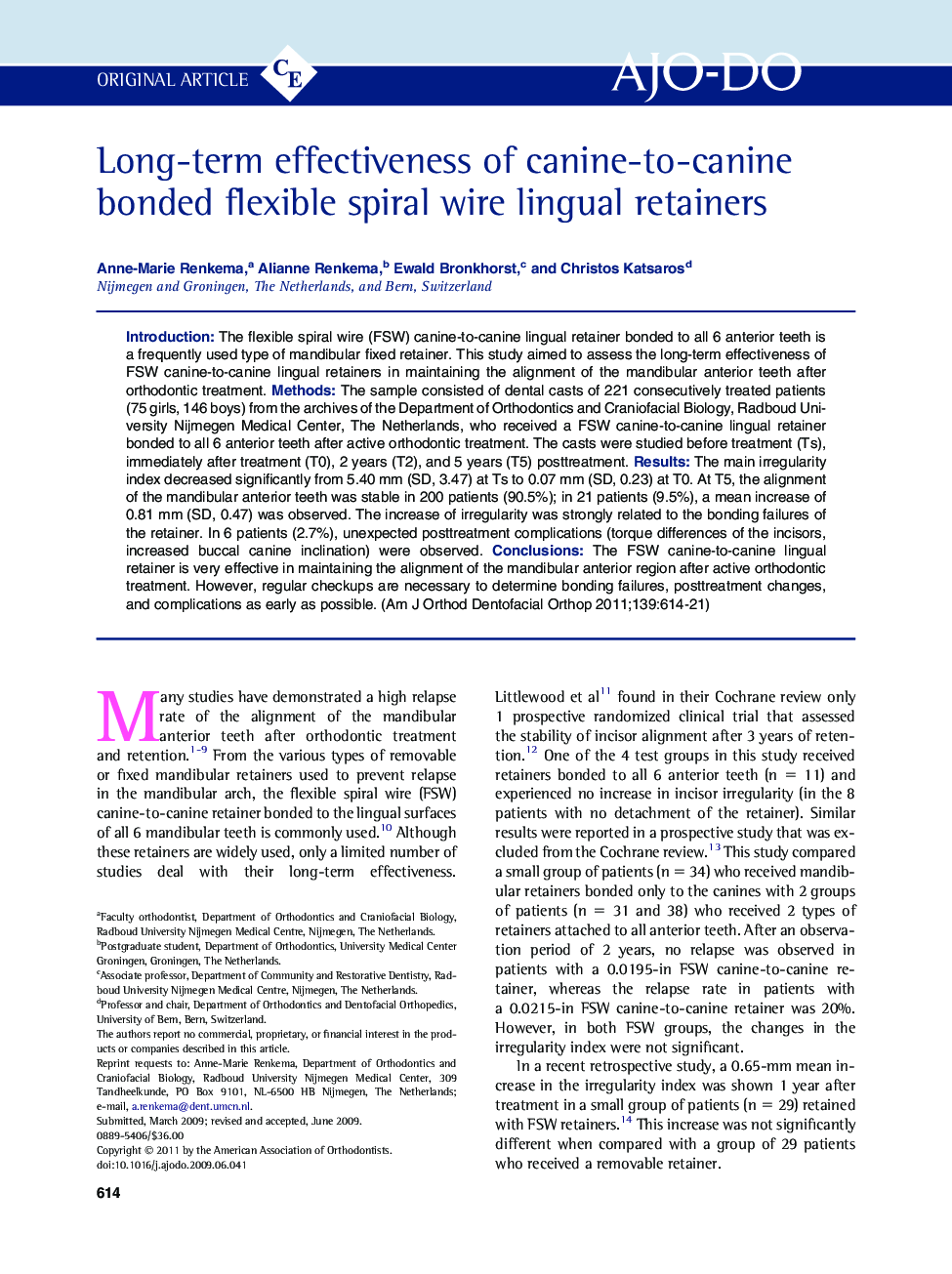| Article ID | Journal | Published Year | Pages | File Type |
|---|---|---|---|---|
| 3118758 | American Journal of Orthodontics and Dentofacial Orthopedics | 2011 | 8 Pages |
IntroductionThe flexible spiral wire (FSW) canine-to-canine lingual retainer bonded to all 6 anterior teeth is a frequently used type of mandibular fixed retainer. This study aimed to assess the long-term effectiveness of FSW canine-to-canine lingual retainers in maintaining the alignment of the mandibular anterior teeth after orthodontic treatment.MethodsThe sample consisted of dental casts of 221 consecutively treated patients (75 girls, 146 boys) from the archives of the Department of Orthodontics and Craniofacial Biology, Radboud University Nijmegen Medical Center, The Netherlands, who received a FSW canine-to-canine lingual retainer bonded to all 6 anterior teeth after active orthodontic treatment. The casts were studied before treatment (Ts), immediately after treatment (T0), 2 years (T2), and 5 years (T5) posttreatment.ResultsThe main irregularity index decreased significantly from 5.40 mm (SD, 3.47) at Ts to 0.07 mm (SD, 0.23) at T0. At T5, the alignment of the mandibular anterior teeth was stable in 200 patients (90.5%); in 21 patients (9.5%), a mean increase of 0.81 mm (SD, 0.47) was observed. The increase of irregularity was strongly related to the bonding failures of the retainer. In 6 patients (2.7%), unexpected posttreatment complications (torque differences of the incisors, increased buccal canine inclination) were observed.ConclusionsThe FSW canine-to-canine lingual retainer is very effective in maintaining the alignment of the mandibular anterior region after active orthodontic treatment. However, regular checkups are necessary to determine bonding failures, posttreatment changes, and complications as early as possible.
